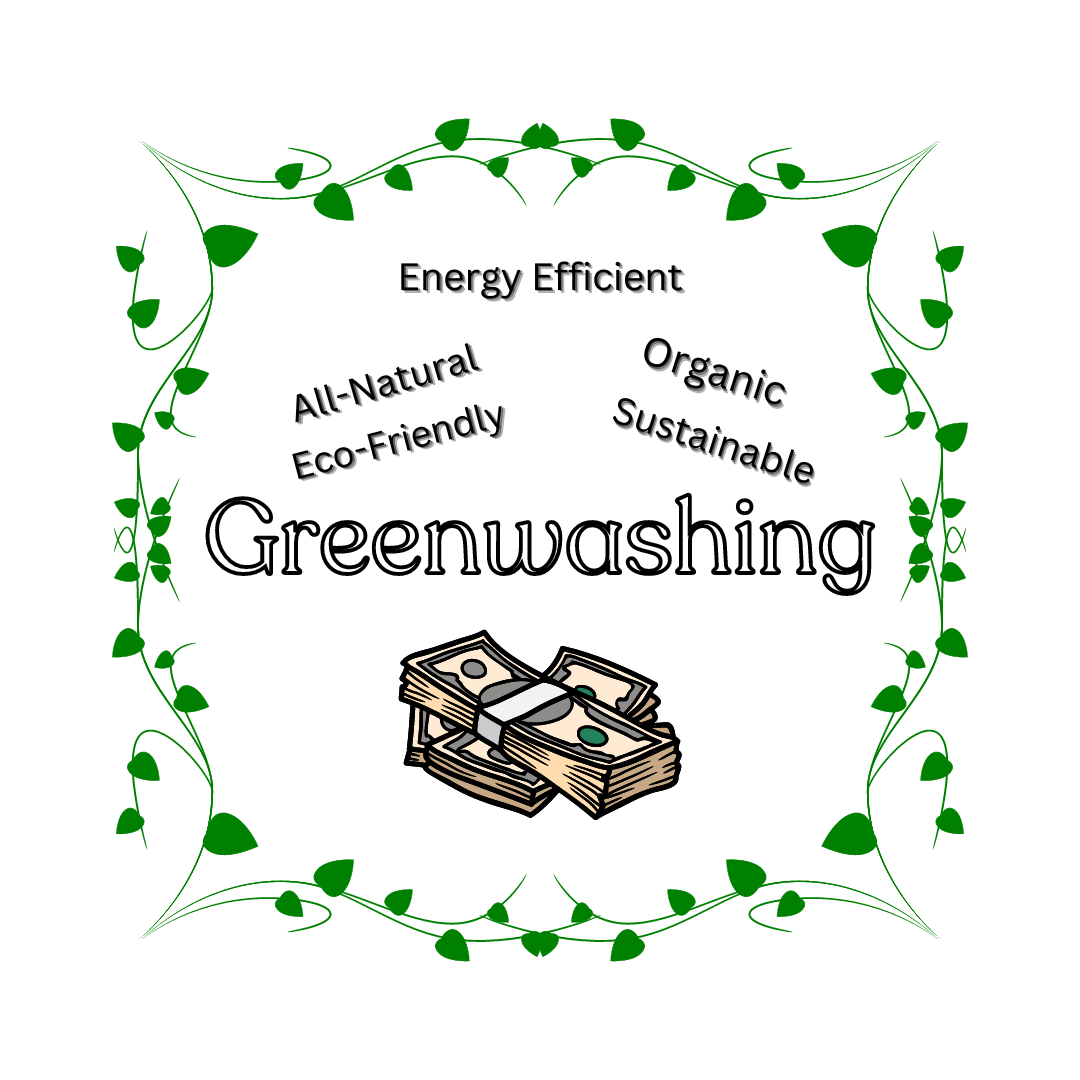What is Greenwashing?
Greenwashing is a deceptive marketing practice where companies exaggerate or falsely claim their products are eco-friendly, natural, or free of harmful ingredients. This tactic can mislead well-intentioned consumers seeking genuinely non-toxic skincare options.
Unmasking Greenwashing:
In the world of skincare, transparency is key. Unfortunately, not all companies are as forthcoming as we'd like them to be. Greenwashing is a marketing ploy that has left many consumers feeling perplexed and misled. Let's dive into the best ways to identify greenwashing and why companies might resort to this tactic.
Identifying Greenwashing:
- Vague Terminology: Watch out for terms like "natural," "green," or "eco-friendly" without specific certifications or explanations. Genuine non-toxic products are usually transparent about their ingredients.
- Hidden Ingredients: Check the ingredient list for potentially harmful substances. Greenwashed products might contain hidden toxins disguised by a few natural elements.
- Packaging Claims: Beware of products boasting green packaging but lacking substance. True non-toxic products prioritize clean formulations over flashy marketing.
Why Companies Greenwash:
- Profit Motive: Greenwashed products often command higher prices. Companies may see this as an opportunity to capitalize on the growing demand for eco-friendly options.
- Market Competition: In a saturated market, standing out can be a challenge. Greenwashing allows companies to appear more environmentally conscious, attracting conscientious consumers.
- Lack of Regulation: With limited industry regulation, companies may exploit gaps in oversight to make misleading claims. Companies certainly take advantage of these loopholes.
Empower Yourself:
- Research Brands: Look for companies that prioritize transparency and are committed to sustainable practices.
- Ask Questions: Don't be afraid to contact companies directly with questions about their sourcing, production, and ingredient choices.
- Read Labels: Familiarize yourself with common toxins found in skincare products. We provided an extensive list of commonly used toxins to keep an eye on. This knowledge will help you make informed choices.
- 1,4 Dioxane- A known carcinogen to humans! A way around this is when you see a product containing PEGs and ingredients that have -eth, for example: Sodium laureth sulfate (SLES) & Polyethylene glycol (PEG) compounds
- Fragrance (Parfum)- Fragrances can contain a mixture of various synthetic chemicals, including phthalates, benzene derivatives, aldehydes, and more. The lack of transparency makes it challenging for consumers to identify and avoid specific ingredients that could lead to adverse reactions
- Parabens- methylparaben, ethylparaben, propylparaben, and butylparaben.
- Phthalates [ex: diethyl phthalate (DEP), dimethyl phthalate (DMP), and dibutyl phthalate (DBP)]- these are endocrine disrupting chemicals that have been linked to reproductive and developmental issues
- Mineral Oil- Mineral oil is a mixture of hydrocarbons obtained from petroleum.
- Silicones- [ex: dimethicone, cyclopentasiloxane, and phenyl trimethicone]- Can cause skin irritation and redness. Silicones can build up on your hair and skin causing clogged pores and greasy hair.
- Water (Aqua)- in the absence of a preservative, the product is prone to developing mold and experiencing rancidity, leading to a deterioration in both its freshness and longevity.
- Ethylhexyl Palmitate- an ester of 2-ethylhexyl alcohol and palmitic acid which has properties that go against the purpose of skin moisturizer, such has causing dry skin and irritation
- Stearyl Alcohol - a fatty alcohol derived from stearic acid. Contrary to the intended purpose of certain skincare products, Stearyl Alcohol may have a drying effect on the skin.
- Acrylates c10-30 Alkyl Acrylate Crosspolymer- synthetic polymer that acts as a thickening agent, stabilizer, and emulsifier in cosmetic and skincare products.
- Ethylhexylglycerin- synthetic preservative
- Phenoxyethanol - synthetic preservative
- Steareth-21- a polyethylene glycol ether of stearyl alcohol.
- Tetrasodium Edta- used as a chelating agent to improve the stability and shelf life of formulations by binding to metal ions


2 comments
Patricia! Thank you so much for your kind words and support!
We’re so happy the post resonated with you.
We are planning to expand into more health-forward products. Our Essence Roll-On Oil is coming soon as a clean replacement for perfume, and natural deodorants are on the horizon too.
We’d love to know, what kind of health products would you love to see from us?
I finally found something interesting to read on Facebook and I pray that your company keeps growing. Do you think you will have health products in the future. I can’t wait to try your skin care